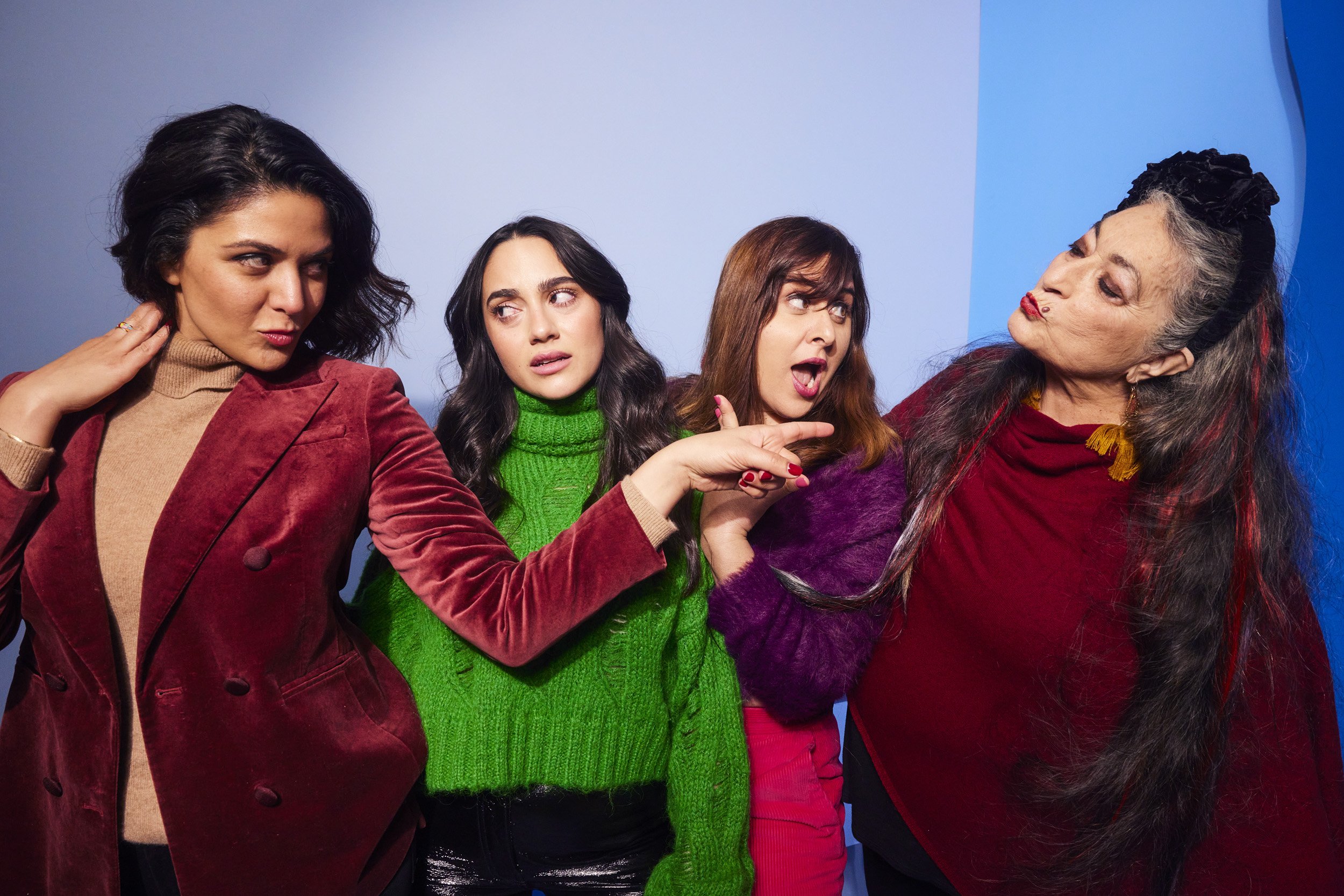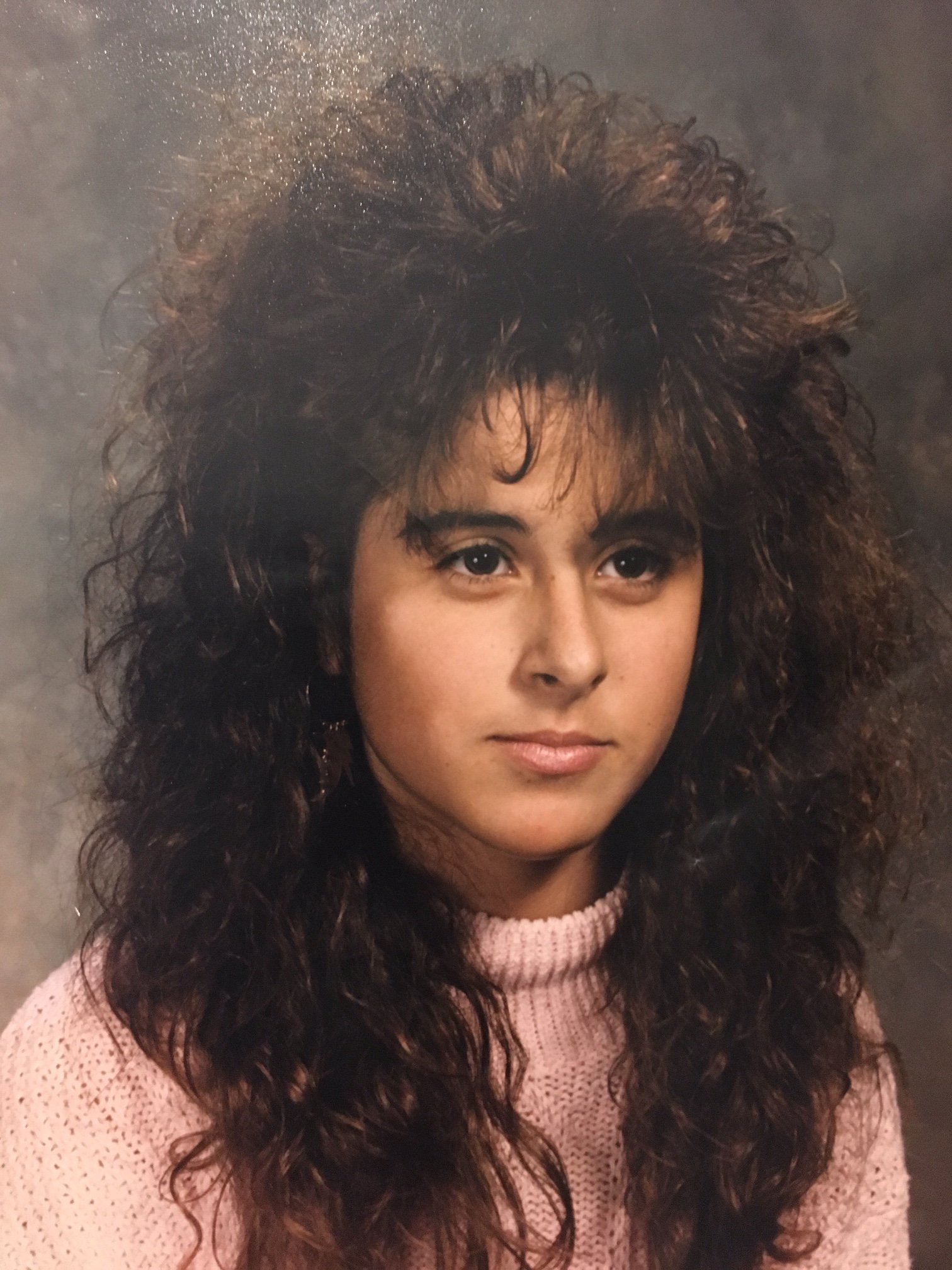the persian version
Maryam Keshavarz’s The Persian Version is one of those films where it’s important to discuss the filmmaker’s intentions before touching on the work itself. The ostensible goals of this movie are laudable: to bring the Iranian-American experience to a wider audience and to make a decades-spanning mother-daughter dramedy that both educates and entertains its audience. Unfortunately, the director, and by extension, the film itself, are so eager to be liked, and so devoid of respect for their audience, that it all comes out as a garbled, disjointed, pedantic mess.
The movie’s intro is confident and irreverent to the point of almost being subversive. When we first meet one of the film’s two heroines, Leila (Layla Mohammed), she’s attending a Halloween party wearing a burka top and bikini bottom, holding a surfboard. In a series of quick edits, we see her strolling through the streets of New York in this sexy, silly getup, even walking across the Brooklyn Bridge to the party (was the subway not working that day, or…?), set to a catchy pop song. Once there, she wins best costume for her outfit: “Ms. Burka-tini.” This is the opening montage, and if you’re thinking, “Okay, it’s time for the montage to be over, and for the actual movie to begin,” then strap in, bucko. Because the entire movie is nothing but a montage.
From those opening scenes, we cut to another rapidly edited sequence catching us up on her childhood. Here, Keshavarz indiscriminately uses a hodgepodge of various storytelling gimmicks, like Carrot Top reaching into his prop box. There’s animation superimposed on the screen, to reflect childhood Leila’s admiration for pop icons like Michael Jackson and Cyndi Lauper. There’s on-screen text, which is so varied in font size and appears so rapidly that it’s difficult to read. There’s also the first of many poorly edited and choreographed dance sequences. As we zip through to the present, modern-day Leila begins speaking to the camera to give viewers a crash course in Shia Muslims’ beliefs and culture. She breaks it down so condescendingly (every sentence might as well begin with “okay, so”) and yet so rapid-fire that it starts to feel like a boomer’s idea of what a TikTok video must be like.
Indeed, the movie is so rapid-fire and energetic that it feels like it’s meant for children with ADHD. I say ‘children’ because the plotting and dialogue are so insultingly asinine that they’re offensive to anyone who’s matriculated from lower school. At one point, faced with financial ruin, one character staunchly announces, “We are Iranian. We don’t do bankruptcy.” That’s the level of depth in the dialogue. At another point, a woman decides to become a realtor. So what does she do? She walks to a nearby pay phone, dials a random number, and asks how to become a realtor. And then she does! It’s so removed from reality and so relentlessly dumbed down that I felt like I was watching A Christmas Story (which, btdubs, I’ve never been able to watch all the way through). Perhaps this is the director’s way of portraying magical realism (which Leila refers to as being a part of Shia Muslim life), but instead it comes across as being designed for younger audiences. This is a head-scratching decision, to say the least, given the ample profanity and heavy thematic material the movie explores.
By the time we meet the other heroine, Leila’s mom Shireen (Niousha Noor), you’ll already have whiplash. The movie continues to jump backward and forward in time, showing not only Leila’s childhood but also Shireen’s past. It eventually becomes difficult to keep track of whose story is being told and in which time period it’s set. Adding to the confusion is the fact that, with a few exceptions, the actors look exactly the same, no matter what decade it is. There’s no attempt to age the actors up or down (a nominal attempt is made to change up the hair styles), and no differing color palettes to clue us in. And so I’m forced to conclude that this is a family of vampires, because Shireen looks the same from the 1980s through present day.
The storytelling is so relentlessly energetic and disjointed that it rarely stops to take a breath. It’s too bad, because when the movie actually lets a scene play out, it’s quite effective. One standout scene (maybe the only one?) is when Leila and her boyfriend Max (Tom Byrne) announce at a big family lunch that she’s pregnant. Yes, it’s over-edited still, but the scene seems to trust its actors, putting them all in one space and choreographing the various reactions to this big news and what it says about them in turn. It’s an awkward, cute, touching moment, one in which you can feel the various family members growing closer together. In other words, it’s what the rest of the movie should’ve been.
I could go on. I could talk about how Mohammed and especially Noor have little to no chemistry with their scene partners, coming off as individual players careening through the plot rather than daughters and mothers, respectively. I could talk about how when the movie does veer into genuine tragedy and pathos, it barely registers. Or about how the ending itself is competent enough, but again, feels anticlimactic. By the time the final (again, poorly directed and choreographed) dance sequence arrives, I’d lost the thread to the point that I didn’t know what the hell was going on. Why is everyone dancing? Are we supposed to care, and if so, why?
This is clearly meant to be Sundance’s next gem, a globe-spanning comedy that makes everyone feel warm and fuzzy when the credits roll. And there’s a genuinely interesting point of view here. I would absolutely watch an irreverent yet warm-hearted exploration of what it means to be Iranian-American. The movie is front-loaded with some really interesting things to say about the tension that Leila feels, torn between her two warring identities. But the storytelling potential is squandered, the movie instead focusing on winking at the audience so hard it might strain its orbicularis oculi. As I was watching this, I kept thinking of the recent Disney+ series, Ms. Marvel. Though it represents a different cultural perspective, that of Pakistani-Americans, it was similarly (?) aimed at a younger crowd, offering a bubbly main character grappling with her identity, and educating the audience on topics such as the Partition of India. That show was far more successful, because it didn’t talk down to the audience, and trusted its own storytelling. I’m not sure whether The Persian Version’s missteps are borne out of the director’s lack of confidence in themselves, or in the audience. In any case, the end result is the same—a movie that’s clearly trying way too hard, at everything. Ironically, by trying to appeal to too many people, it ends up being an indigestible mess.


